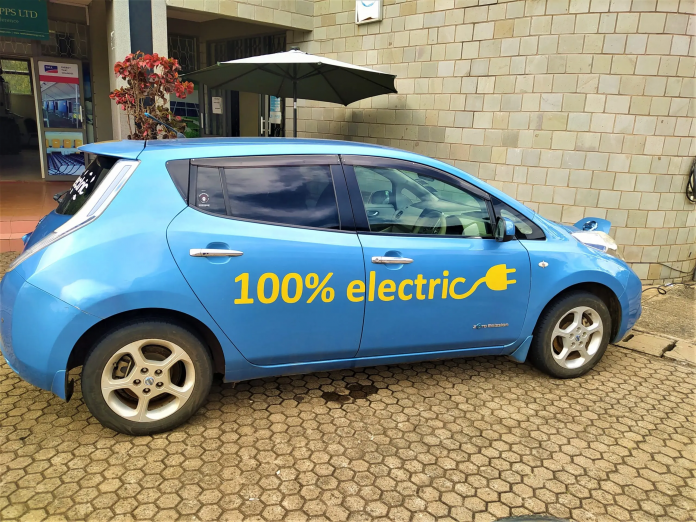There is also a lot of interest from local and international private firms who are viewing positive investment opportunity. These charging networks will also create new employment opportunities through creation of new local value chains.
EV dealers are also going a step further by providing in-house charging solutions to their clients.
The vehicles we recently launched at META Electric, have a range of up to 300Kms on a full charge. They come with a 40kW DC and 6.6kW AC charger. The DC charger will give you a full charge in 1.2 hours while the AC charger will give you a full charge in 7.2 hours. At the current KPLC electricity billing rate it will cost you approximately Ksh955 to travel 300KMs as compared to up to Ksh5,000 on an equivalent 2,000cc petrol vehicle. An impressive 80% saving!
See >> Car Dealers Sign Agreement to Produce Electric Commercial Vehicles
The introduction of EVs would lead to improved air quality, reduction of greenhouse gas emissions and positive economic impacts of the technology through the creation of new local value chains. It also noted the transformative potential of electric motorcycle uptake in the country is highly likely to become a reality.
The Kenya Bureau of Standards has halved excise duty charged on electric powered vehicle imports from 20% to 10% but more needs to be done for us to be on par with other parts of the world, whether that be by tax breaks or direct subsidies.
Owning and driving an EV is indeed a bold statement for any individual/company in Kenya but it is the correct direction to steer into for Kenya. EV’s help save on major costs compared to any internal combustion engine vehicle. They greatly reduce operating expenses as they beat the diesel/petrol competition hands down costing less than half for fuel, Service, maintenance, and repairs at very reasonable mileage.
The African Sustainable Transport Forum, led by the UN, is working with government and private sector to integrate sustainable transport into the region’s development and planning processes, and to increase the amount of funding going to sustainable transport in Africa. The country’s vehicle fleet is set to double between 2016 and 2023 so switching to electric mobility will be essential for public health and limiting environmental damage.
Next >> Places Where Kenya Power Plans To Install Electric Chargers

 General News2 days ago
General News2 days ago
 Business News1 week ago
Business News1 week ago
 Entertainment6 days ago
Entertainment6 days ago
 General News2 days ago
General News2 days ago






